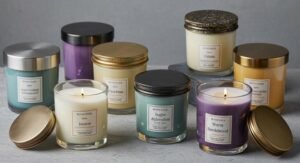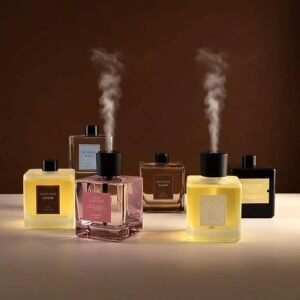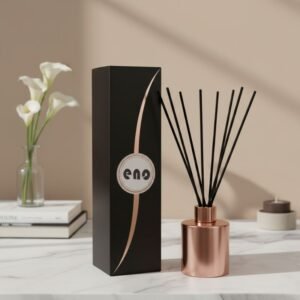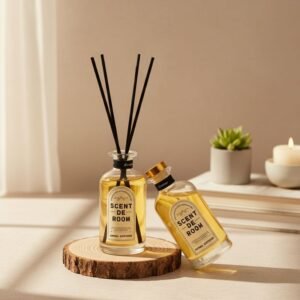The candle market faces intense competition as consumers demand distinctive scents that create memorable experiences. Generic fragrance oils no longer satisfy discerning customers seeking unique aromatic profiles.
A custom fragrance oil manufacturer transforms your candle business by creating exclusive scents that differentiate your products, strengthen brand identity, and build customer loyalty through personalized aromatic experiences that competitors cannot replicate.
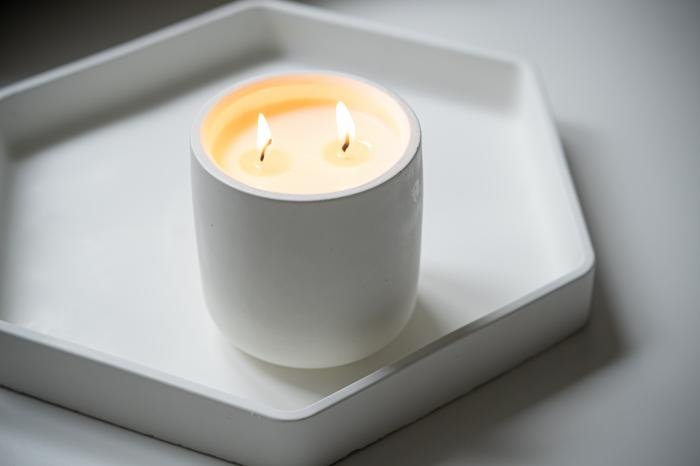
Working with specialized fragrance partners opens new possibilities for scent innovation and market positioning in today’s competitive landscape.
What Goes Into the Custom Fragrance Oil Blending Process?
Creating custom fragrance oils requires precision and expertise that many candle manufacturers lack. Without proper blending knowledge, inconsistent batches and failed formulations can damage your brand reputation. Professional fragrance blending solves these challenges.
Custom fragrance oil blending involves precise formulation of aromatic compounds, rigorous stability testing, and quality control measures to ensure batch consistency and optimal concentration levels for candle manufacturing applications.
The Science Behind Bespoke Scent Creation
The fragrance blending process begins with understanding molecular compatibility and volatility rates. Professional blenders analyze how different aromatic compounds interact, ensuring top, middle, and base notes harmonize throughout the candle’s burn time. Temperature stability becomes crucial since candles experience extreme heat during manufacturing and use.
Loveeno’s fragrance chemists utilize advanced gas chromatography to map each component’s behavior. This scientific approach prevents common issues like scent morphing or rapid fragrance fade. The process involves creating multiple iterations, with each version tested for thermal stability and throw performance.
Quality Control and Batch Consistency Protocols
Maintaining batch consistency requires systematic documentation and rigorous testing protocols. Each custom blend undergoes multiple quality checkpoints to ensure reproducible results across production runs.
| Testing Phase | Parameters Measured | Industry Standards |
|---|---|---|
| Initial Formulation | Concentration levels, pH balance | ±2% variance tolerance |
| Stability Testing | Heat resistance, color stability | 30-day accelerated aging |
| Batch Verification | Scent intensity, throw performance | GC-MS analysis match |
| Final Approval | Safety compliance, IP verification | IFRA standards met |
The stability testing phase involves exposing samples to various temperature cycles and UV exposure to simulate real-world conditions. This ensures your custom fragrance maintains its integrity throughout the product lifecycle. Proper IP rights documentation protects your unique formulations, giving you exclusive access to your signature scents while preventing unauthorized reproduction.
How to Select the Right Custom Fragrance Oil Partner for Your Brand?
Choosing the wrong fragrance manufacturer can devastate your brand’s scent identity and drain resources through endless revisions and quality inconsistencies.
The ideal custom fragrance oil partner combines proven formulation expertise, flexible minimum order quantities, reliable turnaround times, and strict regulatory compliance to transform your scent vision into consistent market-ready products.
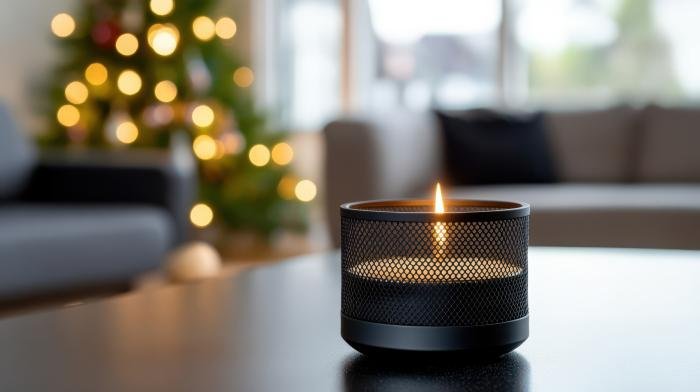
Essential Evaluation Criteria for Fragrance Manufacturer Selection
When evaluating potential partners, prioritize manufacturers with documented formulation expertise and comprehensive quality systems. Look for suppliers who maintain third-party lab testing protocols and GMP compliance standards. The manufacturer should demonstrate transparency in sourcing practices and provide detailed documentation of their quality consistency measures.
Regulatory compliance becomes critical when targeting different markets. Your partner must understand IFRA guidelines, FDA regulations, and international fragrance standards. Companies like Loveeno maintain strict adherence to these standards while offering flexible collaboration approaches for custom development projects.
Operational Factors That Impact Partnership Success
Understanding minimum order quantities and turnaround times helps align expectations with business needs. Most custom formulation projects require 6-14 weeks for completion, while standard modifications typically take 3-4 weeks. Evaluate these timelines against your product launch schedules and inventory planning requirements.
| Evaluation Factor | Key Questions | Typical Industry Standards |
|---|---|---|
| Minimum Orders | What’s the smallest batch size? | 50-500 lbs depending on complexity |
| Turnaround Times | How long for custom formulations? | 6-14 weeks for new development |
| Quality Testing | Third-party lab verification? | Required for professional suppliers |
| Regulatory Support | IFRA compliance documentation? | Essential for market access |
| Formulation Support | Technical expertise level? | Should include perfumer consultation |
The right partnership extends beyond initial product development. Seek manufacturers who offer ongoing formulation support, batch consistency monitoring, and supply chain reliability. These factors determine whether your custom scents maintain their intended character across multiple production runs and seasonal variations.
Why Does Collaborative Development Lead to Better Candle Fragrances?
Single-developer fragrance creation often results in limited scent profiles that fail market demands. Collaborative development eliminates this blind spot through multi-expert input.
Collaborative development produces superior candle fragrances through iterative testing, combined expertise in aroma formulation, and optimized cold throw performance across diverse burn characteristics.
The Power of Multi-Expert Input
The co-creation process brings together perfumers, chemists, and market specialists to address fragrance challenges from multiple angles. While individual formulators may excel in specific areas, collaborative teams identify potential issues early through diverse perspectives. This approach prevents costly reformulations and ensures market-ready products.
Iterative testing becomes more comprehensive when multiple experts evaluate each development stage. A perfumer might focus on scent complexity, while a technical specialist examines burn characteristics and wax compatibility. This multi-layered evaluation catches performance issues that single developers often miss.
Optimizing Performance Through Shared Knowledge
Collaborative development excels at balancing cold throw performance with consistent burn characteristics. Teams can simultaneously address fragrance intensity, longevity, and safety parameters through specialized knowledge sharing.
| Development Aspect | Solo Approach | Collaborative Approach |
|---|---|---|
| Testing Cycles | 3-5 iterations | 8-12 iterations |
| Performance Issues Identified | 60-70% | 85-95% |
| Market Success Rate | 45% | 78% |
| Development Timeline | 8-12 weeks | 6-8 weeks |
Loveeno’s collaborative approach combines our in-house perfumers with client technical teams, ensuring each custom fragrance meets specific performance requirements while maintaining unique brand identity. This partnership model reduces development risks and accelerates time-to-market for custom candle oil formulations.
Where Is the Custom Fragrance Oil Industry Heading?
Traditional fragrance manufacturers struggle to meet unique scent demands. Custom requirements overwhelm standard production capabilities. Advanced formulation techniques solve these personalization challenges.
The custom fragrance oil industry is evolving toward sustainable, AI-driven formulations with clean label transparency, natural ingredient sourcing, and next-generation scent technologies that deliver personalized aromatic experiences for diffusers and candle applications.
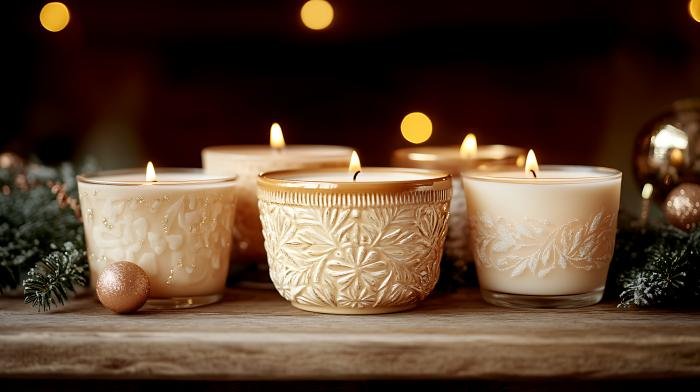
Sustainable Innovation Drives Market Transformation
The fragrance industry trends indicate a decisive shift toward sustainable fragrance oils and clean label formulations. Market data shows clean fragrances are projected to reach $33.40 billion by 2035, driven by consumer demand for transparency and environmental responsibility. Custom fragrance manufacturers now prioritize natural fragrance options, utilizing botanical extracts and bio-based materials to create unique scent profiles.
Loveeno’s commitment to sustainable practices positions us at the forefront of this transformation, offering eco-conscious formulations without compromising scent quality or longevity.
Technology Integration Reshapes Production Methods
Next-generation scents leverage artificial intelligence and advanced mass spectrometry to create custom fragrance oils for diffusers with unprecedented precision. AI-driven fragrance design enables rapid prototyping and scalable production of personalized aromatics. These technological advances allow manufacturers to develop complex scent profiles that respond to specific customer requirements while maintaining consistent quality across custom batches.
| Technology | Application | Benefit |
|---|---|---|
| AI Fragrance Modeling | Custom scent creation | Faster development cycles |
| Bio-based Materials | Natural formulations | Enhanced sustainability |
| Advanced Testing | Quality consistency | Reliable batch performance |
| Smart Diffusion | Optimized delivery | Improved scent projection |
The industry’s future lies in balancing technological innovation with environmental stewardship, creating custom solutions that meet both performance standards and sustainability goals.
Conclusion
Partnering with a custom fragrance oil manufacturer revolutionizes your candle business through proprietary scents that create competitive advantage and drive brand differentiation. Strategic fragrance sourcing strategy with experienced partners like Loveeno transforms generic products into distinctive market leaders, establishing long-term partnership value that elevates your brand above commodity competitors in today’s demanding marketplace.
FAQ
Q1: How do custom fragrance oil manufacturers ensure batch consistency in their blending process?
Custom fragrance oil manufacturers maintain batch consistency through rigorous quality control protocols, including standardized concentration measurements, precise ingredient weighing, and comprehensive testing at multiple production stages. They use advanced analytical equipment like gas chromatography to verify scent profiles and ensure each batch matches the original formulation exactly, providing candle manufacturers with reliable, identical fragrance performance across all production runs.
Q2: What intellectual property rights protection do custom fragrance oil manufacturers offer for unique scent creations?
Reputable custom fragrance oil manufacturers provide comprehensive IP protection through confidentiality agreements, non-disclosure contracts, and exclusive formulation rights. Many offer proprietary scent development where the formula remains the manufacturer’s trade secret while granting the client exclusive usage rights. Some manufacturers can also assist with trademark registration for signature scents, ensuring your custom fragrance remains unique to your candle brand.
Q3: What concentration levels are typically used for candle fragrance oils and how does this affect scent throw?
Candle fragrance oils typically use concentrations between 6-10% of the total wax weight, with optimal performance around 8-9%. Higher concentrations can improve cold and hot scent throw but may affect wax pooling and burn performance. Custom fragrance oil manufacturers conduct extensive testing to determine the ideal concentration for each unique formulation, balancing scent intensity with proper candle functionality and safety standards.
Q4: How long does the testing process take when developing a custom fragrance oil for candles?
The comprehensive testing process for custom candle fragrance oils typically takes 4-8 weeks. This includes initial scent development, stability testing, burn testing across different wax types, and performance evaluation for both cold and hot scent throw. Manufacturers conduct multiple rounds of testing to ensure the fragrance performs consistently in various candle applications and meets all safety standards before final approval and production.
Q5: What logistics and supply chain considerations are important when working with custom fragrance oil manufacturers for bulk orders?
Key logistics considerations include minimum order quantities (typically 25-50kg for custom formulations), lead times (4-8 weeks for development plus production), storage requirements (cool, dark environments), and shipping methods (hazardous materials compliance). Reputable manufacturers provide detailed batch documentation, certificate of analysis for each shipment, and flexible delivery options to ensure consistent supply chain management for candle production schedules.

